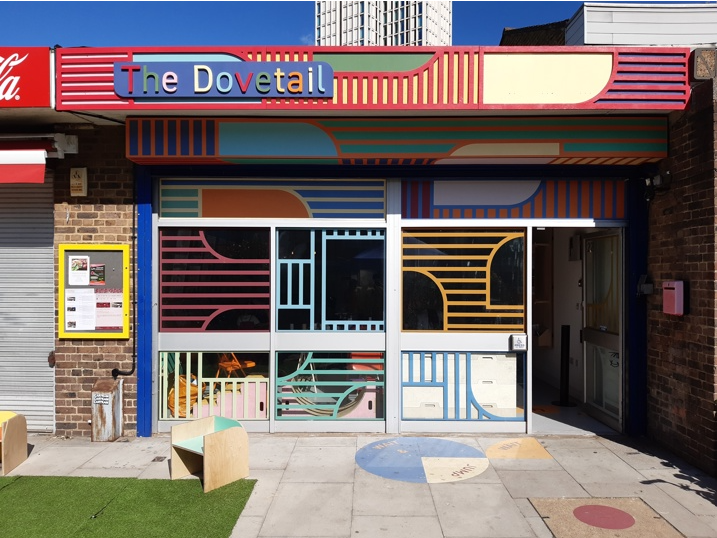Expert analysis and reaction from the House of Commons, as Chancellor Rishi Sunak delivers the Budget.
“Small businesses aren’t out of the woods yet and we were disappointed by the lack of small business-focused policy, particularly for those without a premises, in the Autumn Budget statement,” said Oliver Prill, CEO of SME financial platform Tide. “Small businesses should not be forgotten.”
Today’s Autumn Budget announcement of a 50 per cent reduction in business rates for any small business in retail, leisure or hospitality is still a betrayal of the High Street, says lobbyist Shopkeeper’s Campaign.
Small business owners will face an excessive tax hike in April 2024 when the 50 per cent discount is removed, said Shopkeepers’ Campaign chair Vivienne King.
Meanwhile Mr Sunak’s pledge to make business rate evaluations more frequent is simply a reannouncement of what Philip Hammond promised in 2017, she said.
“We are deeply disappointed that there is no commitment to annual revaluations so that tax bills reflect the market property values,” said King.
Although the Budget did nothing for the self-employed, Seb Malley of self-employed contractor insurance firm Qdos was sceptical about the Chancellor’s continual eulogising of entrepreneurs.
Malley said: “In his speech, the Chancellor was self-congratulatory about the government’s treatment of entrepreneurs. This is now a tired-out, unconvincing rhetoric and one that’s falling on deaf ears.”
And the Chancellor also ignored calls to make the Enterprise Investment Scheme for investment in innovative businesses more attractive. The EIS is currently due to expire in 2025.
Mark Brownridge, director general of the Enterprise Investment Scheme Association, said: “The investment gap for early stage growth businesses that are unable to attract funding through the banking sector, whether supported by government schemes or not, sits at in excess of £2.5 billion.”
Autumn Budget 2021 what it means for small business
Here is a resume of the key announcements made by Chancellor Rishi Sunak this afternoon in a rowdy House of Commons affecting small business:
Business rates cut by 50% for retail, leisure and hospitality for one year
Chancellor Rishi Sunak has announced companies in the retail, hospitality and leisure sectors will be have their business rates halved for one year.
Pubs, music venues, cinemas, restaurants, hotels, theatres and gyms are all eligible for a tax cut worth £1.78bn.
Revaluations will take place every three years from 2023, while there will be a new investment relief introduced to encourage businesses to adopt green technologies like solar panels.
On top of that, there will be a new business rates improvement relief introduced so that any business that makes property improvements will pay no more for 12 months.
Referring to Labour’s plan to abolish business rates eventually, Mr Sunak said he believes that “reckless, unfunded promises to abolish a tax which raises £25bn every year are completely irresponsible”.
The Chancellor said it would be “wrong” to seek to plug that gap elsewhere “so we will retain business rates, but with key reforms to ease the burden and create stronger high streets”.
R&D spending pledge
Elsewhere, Mr Sunak confirmed a Government target to spend £22bn on R&D by the end of Parliament, in addition to R&D tax reliefs.
Put together, this means total public investment in R&D is increasing from 0.7 per cent of GDP in 2018 to 1.1 per cent of GDP by the end of the Parliament.
Economic rebound
The country’s sharp rebound from last winter’s lockdown means that the economy is predicted to grow by 6.5 per cent this year, the Chancellor said. This is nearly twice as much as the 4 per cent predicted by the Office for Budget Responsibility (OBR) in its March forecast. It is due to grow by a further 6 per cent next year.
National Living Wage increase
The National Living Wage, paid to those aged 23 and over, will rise to from £8.91 to £9.50 an hour – an increase of 6.6 per cent.
The rise in the National Living Wage has been recommended by the Low Pay Commission, the independent body which advises Government on the issue. The increase amounts to an additional £1,000 a year for someone in a full-time role working about 35 hours a week.
In 2019, the Conservative government pledged to increase the National Living Wage to about £10.50 per hour, making it the highest in the developed world.
However, small businesses have warned that increasing wages too much will put jobs under threat as many low-paid sectors recover from the Covid blow.
One third of small businessees are planning to increase prices to pay for a bigger wage bill while 15 per cent said it would affect hiring, according to a survey by the Federation of Small Businesses.
Mike Cherry, chairman of the FSB, warned that any pay rise “must be affordable without jeopardising jobs”.
“Small firms are still trying to recover from the pandemic, and the last thing they want to do is to force customers to pay more or make cuts to staffing numbers,” he said.
Sandra Rowley of card payment solutions provider Takepayments said that the minimum wage rise would be “another cost challenge” for small business owners, as the 6.6 per cent increase will cost them £1,000 per year for each minimum-wage full-time worker.
According to Takepayments, one in four (28 per cent) of small business owners think the Government should offer them extra support to help cover the minimum wage increase.
“The overall business environment will remain challenging for those small, independent businesses in the UK,” said Rowley.
Annual Investment Allowance extended
The £1m Annual Investment Allowance will not end in September but will be extended to March 2023.
National Insurance to rise
As announced in September, from April National Insurance rates for both employees and the self-employed will rise by 1.25 percentage points across earnings bands, raising around £12bn a year.
Levelling Up Fund projects
The Chancellor also announced the first successful bids for the “Levelling Up Fund” to tackle regional inequality. The Government will spend £1.7bn on projects in a hundred locations, including Aberdeen, Clwyd South, Stoke-on-Trent, Ashton-under-Lyne, Sunderland, Doncaster and West Leeds.




